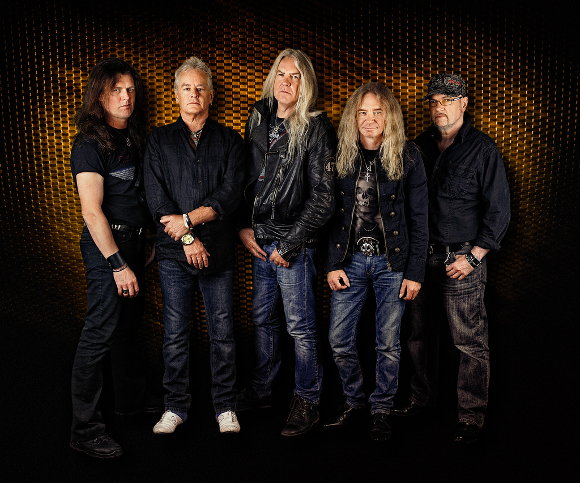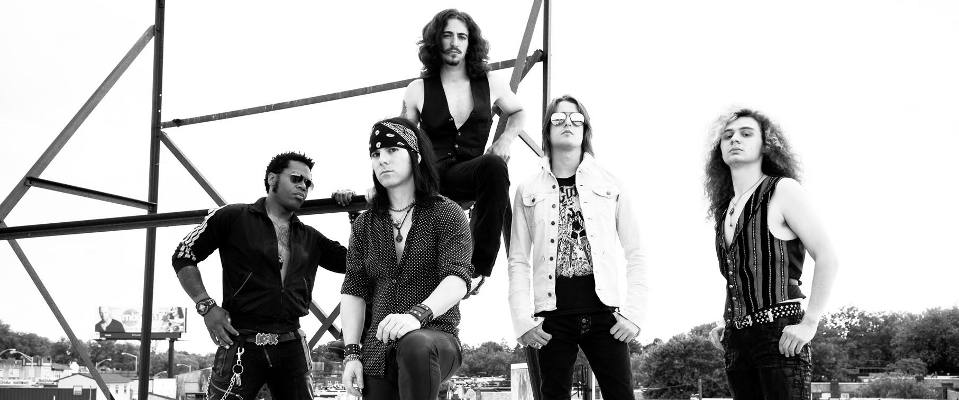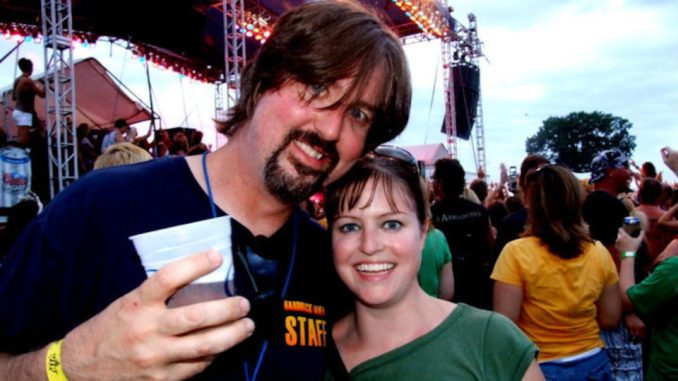
by Alexandra Mrozowska
– Columnist —
Hardrock Haven’s managing editor and PR guy, Derric Miller, joins John in the interrogation. Miller explains how his background and writing experience has helped John grow the site, changes to the industry good and bad, how writers can improve their reviews and a whole lot more.
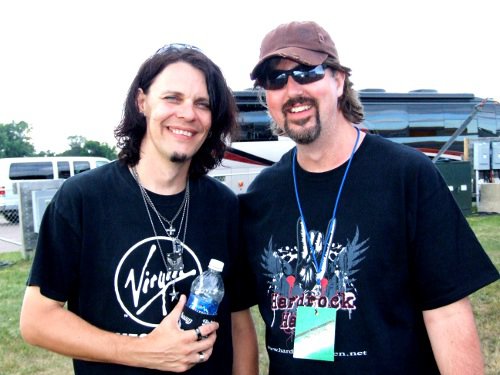
Derric Miller: Hardrock Haven managing editor. I live in South Dakota in the United States, and my first music review gig was with www.metalexpressradio.com, based out of Oslo, Norway, from 2000-2002. Metal Express sent out an email newsletter calling for new writers. I put my name in the hat, I reviewed an album they assigned me, and I was hired based on the quality of my review. Before Metal Express, I had published, both, horror and nonfiction in the mainstream markets, so writing was in my arsenal before I ever penned a music review. I joined Hardrock Haven in 2003 and have been with them ever since.
Alexandra Mrozowska: Can you introduce the website you are in charge of – Hardrock Haven (http://hardrockhaven.net/online/) and say a few things about the foundations of it?
Derric: Hardrock Haven is a globally-focused Hard Rock/Heavy Metal webzine, featuring album/concert/book reviews, artist interviews, giveaways, editorials and more. The site is quality-conscious driven, with all content following Associated Press Style Guidelines, meaning industry standard across the board, whether you compare us to Rolling Stone Magazine or MTV. With two trained journalists as the main editors, quality is of the utmost importance with all content. Customer service with the PR firms/labels/bands/etc. is another thrust of the site. Hardrock Haven sends coverage links for all updates to the involved parties so that they are aware of the coverage and can then share it via email, social media sites and more. Hardrock Haven was founded not only to evolve with the times but to stay ahead of the curve.
Alexandra Mrozowska: Once, I heard an opinion that most of the music journalists are “the unfulfilled musicians,” who have decided to try the other side of the spectrum of the music industry after years of an unsuccessful struggle in garage bands, etc. What is your take on that?
Derric: I cannot play an instrument nor have I ever been in a band. This critique is valid with some writers, but certainly it’s not an accurate blanket description. I’m a writer who happens to love music, not a music lover who wants to become a failed-musician and then a music writer.
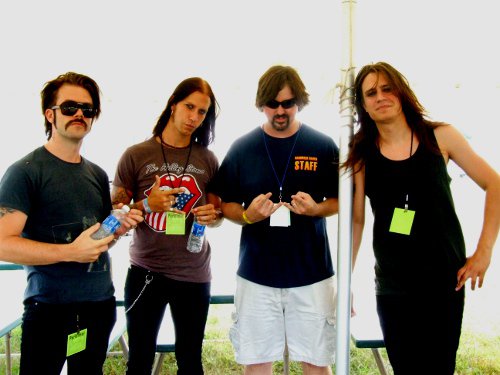
Alexandra Mrozowska: Which advantages and disadvantages had been brought with a shift from newspapers and magazines to world of the Internet and specified webzines? What changes has it brought to the worldwide music journalism?
Derric: The first part, digital, mobile media is the preference for millennials on up to baby-boomers. If you want to have readers, you need a digital presence. Digital mediums are cheap and instantly global, unless you charge a subscription. Meaning, a newspaper with a 10,000 print circulation can, hypothetically, have millions of digital readers. The downside is that millions of jobs in the print media around the world are being lost, and the salaries are not being replaced. The true journalistic talent lies with the print media, first.
So that’s the downside. Just like any kid with Pro Tools can record an album, anyone who can type can now call themselves a “writer.” Well, just because I can drive a car doesn’t make me a NASCAR (professional race car) driver. The lack of quality writing talent on amateur websites and blogs is widespread, I assume, but I don’t focus on seeing how bad it can be out there; I just want Hardrock Haven to be among the best.
Alexandra Mrozowska: Which forms of music journalism do you prefer: Album/DVD reviews, concert reviews or the interviews and why?
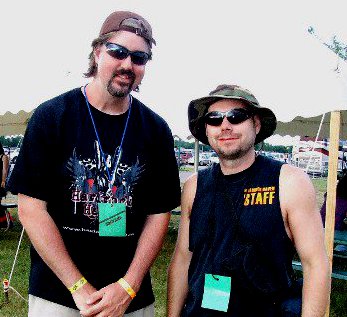
Concert reviews bore me as a writer; the band was either on their game, average or bad. There’s not a lot of leeway to be creative, except that the song selection could have been “better,” which is subjective.
When an album clicks with me, I pen my best reviews, and I can go back into the album and find something new to inspire me again. When I interview those who inspired me creatively — like Geoff Tate, Tony Harnell, Dave Meniketti, Ron Keel, Jack Russell, etc. — I can go back and listen to those interviews over and over and find something new to inspire me again.
Alexandra Mrozowska: What features of character are essential to a good music journalist?
Derric: First off, you have to love music. Writing is not accounting; it’s not a set of rules that define each step you make in the process. A vast knowledge of the genre you are covering is important, but it’s also important to know as many other genres and artists as you can mentally compile, because musicians don’t just listen to themselves. Knowing blues artists of the ’40s will help you understand bands like Cinderella in the ’80s, although you wouldn’t know it unless you know it. Lastly, attention to detail is important. If your writing is filled with errors, homophone confusion and just stream-of-consciousness blather, no one will enjoy reading it except the inexperienced writer who wrote it in the first place.
Alexandra Mrozowska: “People who can’t write, doing interviews with people who can’t think, in order to prepare articles for people who can’t read” – that is how a rock musician Frank Zappa defined rock journalism in his ‘The Real Frank Zappa’ book. What is your comment on that?
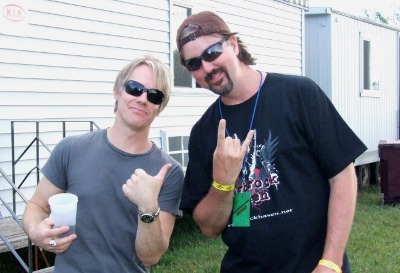
Alexandra Mrozowska: Now, a bit stockist question, let’s say – how would you consider the quality of music journalism nowadays?
Derric: I do, at times, read other websites and their reviews, and the biggest common mistake when reviewing music is writing in the first person voice. For instance, “I like Great White because my mom used to sing ‘The Angel Song’ to me when I went to bed at night.” New and upcoming writers have to understand no one cares about them personally; the readers want to know what the music is about, not the writer’s childhood upbringing. And what does it mean when they write “I recommend this CD.” Why do you recommend it? Because “you like it?” That’s lazy, ineffectual, boorish writing. If you keep it in the second or third person voice, you’ll step outside your personal experiences and focus on defining what is positive or negative about the music, not what song you lost your virginity to.
Most of the music journalism I’ve graded mentally is average. It’s not all bad, but most of it doesn’t impress one way or the other.
Alexandra Mrozowska: Are there any professional magazine writers or journalists whom you consider/ed your role models? What are your favorite magazine titles?
Derric: I personally don’t read any music reviewers or editorialists except for Chuck Klosterman, who also writes about sports, life, ethics and the human condition, in general. Other than Klosterman and my fellow writers at Hardrock Haven, I take my cues from my favorite writers in general, authors like Harlan Ellison, Joe Landsdale, Max Collins, David Schow, F. Paul Wilson, to … writers who don’t define themselves with genre labels. I don’t consider myself a “music journalist,” but a writer. I write whatever I want to write; Hardrock Haven is one outlet among many.

